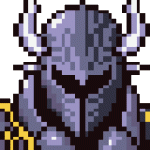For some business applications, where requirements are very rigid and the general type of problem is pretty familiar, then a waterfall / non-iterative approach can make sense.
But for game design, at least for me personally, an iterative approach has been useful enough that I can't imagine using a non-iterative approach, from a practical basis.
To take just one example, I had initially imagined/planned/designed that the movement UI would be heavily accelerometer based. But, before I settled on my current movement AI, I quickly prototyped 3 different UI's: accelerometer, traditional buttons, and swipe. Over the course of a few weeks, myself and 2 others tested all 3 prototypes, and I made quick coding tweaks to fix bugs / fine-tune. We found that what I envisioned (the accelerometer), was absolutely terrible and so got scrapped completely and ended up going with swipe.
I'm very glad that I (or anyone else) did not spend dozens of hours making extensive, detailed plans based on using the accelerometer, as all that design work would of been wasted.
This isn't to say a nice design or an "ideas guy" is bad, I think they can be extremely useful in some situations. Specifically, where they are not set in stone but willing to rapidly iterate, and you already have enough programmers and artists.
For a small hobbyist team, an ideas guy even without programming or art skill could still be extremely useful to the team, as long as they are able and willing to do a lot of non-design tasks and grunt work the team needs too, as opposed to spending 90% of their time on ideas. If they spend 25% of their time or less on idea generation / design documentation, and 75% or more on other useful tasks, it could work out.
I'm talking about things like:
- recruit additional members: go to arts colleges and compsci colleges, hand out business cards, tack on your posters, go to game boards
- community outreach - go to web boards and chats and try to find new alpha testers
- find and purchase things like server hardware as needed
- schedule interviews with prospective new team members
- book meeting rooms / library room time / videochat and coordinate schedules for team meetings
- grunt work to relieve the artist: sometimes the concept artist needs 100 images to be resized in a way you can't automatically batch it, this is an area the ideas guy can help out, getting the artist back to working on the aspects of concept art creation only they have the skillset to do
- update the team's game website with content / blog posts
- research cost-effective marketing plans
If someone is the "ideas guy" and refuses to help out with these kinds of things, when the programmer(s) and artists are overloaded with work, that is probably what people are objecting to.
Now, if the team is big enough, say 10? 20 people? At a certain point, I think a full-time purist ideas guy / game designer or even several could make sense, depending on the situation. I haven't worked on game development teams that large, but hypothetically I could see a lot of value at that point in a true purist ideas guy, for some scenarios.








